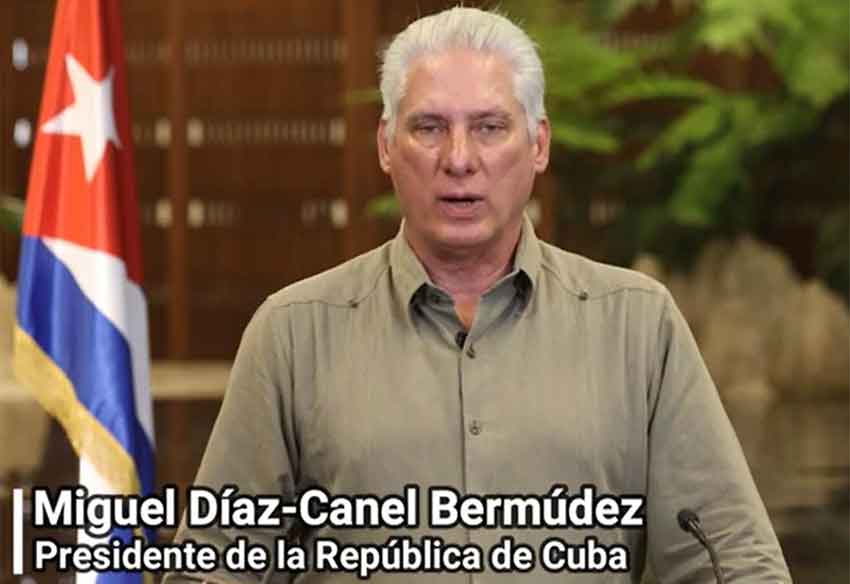
Cuban President Miguel Díaz-Canel emphasized the need for developed nations to collaborate and transfer technologies and resources to developing countries, based on disaster management.
New Delhi.- In a speech, during the opening of the Sixth International Conference on Disaster Resilient Infrastructure, the Cuban president highlighted that this support is required so that developing States may face the scientific and technological gap and environmental degradation.
Díaz-Canel assured that Cuba’s decision to join the Coalition for Disaster Resilient Infrastructure (CDRI) is an example of the priority given to that important issue. “We hope to contribute to mutual learning,” he stated.
Díaz-Canel added that disaster risk management requires the participation of all sectors of society with the leadership of governmental authorities in coordinating national strategies.
The president explained that the Cuban experience demonstrates what can be achieved in this regard, in protecting populations and their property, even when few resources are available and the blockade imposed by the United States, he pointed out.
The Cuban head of state noted that in Cuba the institutional structures, early warning systems, and protection, response, and recovery measures against disaster risks were updated in compliance with the Sendai guideline.
The results achieved have been made available to several developing countries, as part of the cooperation that Cuba offers, he explained, and recognized India’s role as co-president of the Coalition, which he considered key to increasing the resilience of infrastructure systems. (PL)





